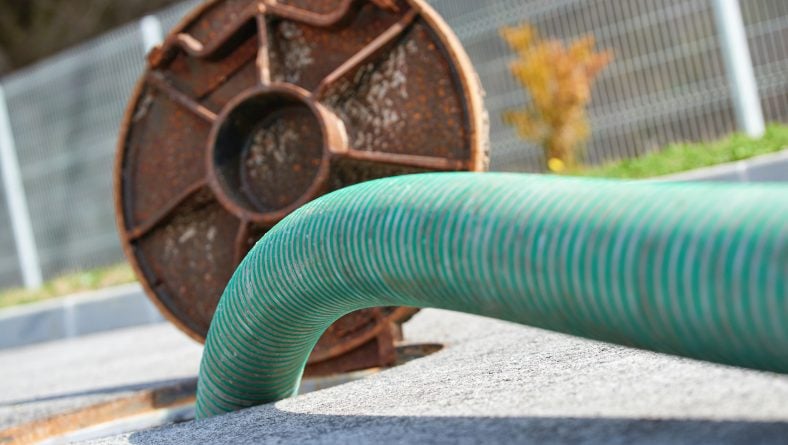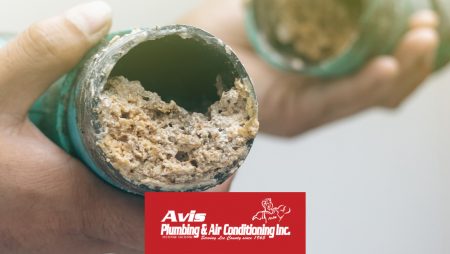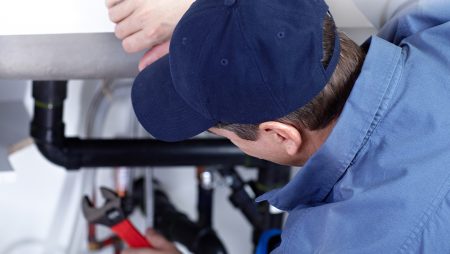While septic tanks do not change most people’s day-to-day activities, there are special considerations to keep in mind if your home utilizes a septic tank system. Look to Avis Plumbing and Air Conditioning for all your Septic and Sewer needs.
Septic Tank vs Sewer System
Despite having the same basic purpose, Septic Tanks and Sewer Systems function vastly different from one another. It is important to understand how both function to better understand what can, or cannot, be sent through them.
Septic tanks are typically used by homes located outside the area serviced by the local sewer system. Homes that are older or located in rural areas are the most likely to have a septic system. Septic systems are usually made of concrete, steel, or fiberglass. They are installed underground and are usually found at the back or side of the property, away from the home. When wastewater occurs (i.e. using a sink or flushing a toilet) the water is sent to the septic tank. The water and waste separate from one another while in the tank and the water is then released into the surrounding soil. The waste remains within the tank until it is pumped out during periodic maintenance performed by a certified professional.
Sewer systems are typically found in most urbanized areas. Planned communities, large subdivisions, and homes located within a town or city all typically utilize public sewer systems. Sewer lines run throughout these areas and transport water waste to nearby treatment plants. Homeowners typically pay a monthly fee to help pay for the system and water treatment, but in turn, they benefit from not having to worry about any sort of maintenance regarding their home’s water waste.
Septic Tank Do’s and Don’ts
The most common knowledge about septic tanks surrounds what can and cannot be sent to them. However, there are a few key Do’s and Don’ts you should be aware of to prolong the life of your septic tank system.
DON’T flush any material that does not easily decompose. Items such as hair, diapers, cigarette butts, coffee grounds, latex, bandages, feminine hygiene products, and most importantly – flushable wipes. None of these items should ever be flushed down a toilet.
Medicines or hazardous chemicals like paint, paint thinner, or bleach should not be poured down drains as they can kill the bacteria needed to decompose wastes in the tank. The same goes for anti-bacterial or “biocompatible” soaps. Only soaps labeled biodegradable should be used in order to avoid killing any necessary bacteria or causing a blockage.
DO use liquid laundry detergent. Powdered laundry detergents use clay as a “carrier”. The clay can create the build-up solids in the septic tank and potentially plug the disposal area.
DON’T utilize a garbage disposal. Garbage disposals significantly increase the amount of solid waste in the septic tank. Disposals also lead to the build-up of grease, especially from meat, bones, and insoluble vegetables. Instead, all food materials should be composted or disposed of in the trash.
DO use water-conserving devices where possible. Low flush toilets and water restricting showerheads are the most commonly available and easy to install. Water should be conserved as much as possible to avoid overloading the septic system.
DON’T make or allow repairs to your septic system without obtaining the required permits or the help of a professionally licensed septic contractor. Records should be kept on all repairs, pumpings, inspections, permits issues, and other maintenance activities.
DO have your septic tank pumped out regularly by a Florida DOH licensed contractor. Failure to regularly pump your septic tank can cause it to overflow, resulting in your drain field flooding and your home’s plumbing becoming unusable. Decades of neglect can lead to needing the whole septic system replaced, which on average costs upwards of $7,500. All of these costs can be avoided by scheduling the regular maintenance of your septic system by a licensed professional.
If you’re ever unsure if your septic system is functioning properly, or don’t know when your tank’s last service was, never hesitate to call Avis Plumbing & Air Conditioning.







No Comment